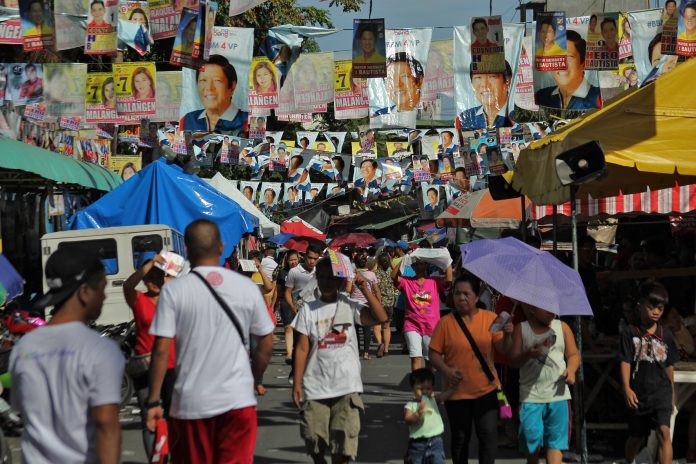Philippine police chief Guillermo Eleazar warned on Monday that political candidates may try to take advantage of the growth in the use of digital platforms and e-wallets in the country to buy votes in national elections next year.
Filipino voters will choose a president and vice president, alongside more than 300 lawmakers and thousands of local government officials, in polls due to be held on May 9.
In the Philippines, elections are frequently marred by vote buying, as many politicians woo people with offers of cash, food and other giveaways in exchange for votes.
But in an environment where social mobility will likely remain restricted due to the COVID-19 pandemic, cashless vote buying could become normal and be harder to detect, Police General Eleazar said.
“Monitoring vote-buying activities in the 2022 elections will really be a great challenge to us,” Eleazar said in a statement, as he appealed for public vigilance.
The police will consult with other state agencies, including the Commission on Elections, to devise ways to counter vote buying via electronic money transfer services, he said.
With many important posts at stake, the 2022 elections are expected to see large sums of money spent by candidates, with process usually starting even before official campaigning begins.
Philippine central bank data showed the number of fund transfers using local instant payment systems quadrupled to 39 million and the value tripled to 552.3 million pesos ($11.6 million) in the first quarter of 2021 from a year ago.
The trend is expected to continue, with the number of Filipinos with bank, electronic money, or other digital transaction accounts, likely to double next year, according to the central bank.









